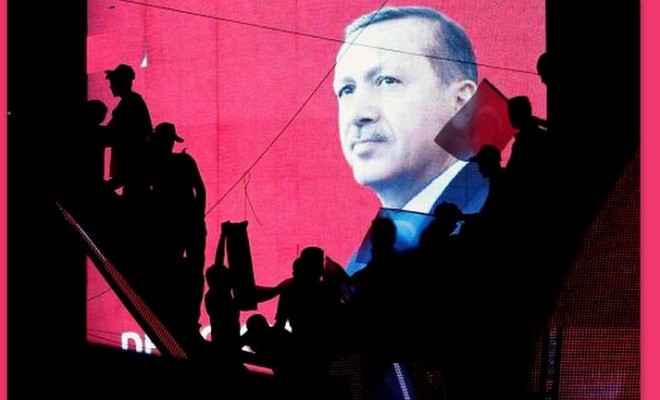
Turkey’s Turn toward Russia
Independent observers have deemed Turkey’s referendum campaign to be neither free nor fair, but their objections may be moot. President Recep Tayyip Erdogan has claimed victory and declared debate over; he will not accept a recount or nullification.
Symbolically closing the door on the secular, Western-leaning republic founded nearly 100 years ago by Mustafa Kemal Ataturk, Erdogan visited not his tomb after the election but rather that of the Ottoman sultan Mehmet II (r. 1444–46, 1451–81), who conquered Constantinople (now Istanbul) in 1453. The visit capped Erdogan’s more than decade-long embrace of neo-Ottomanism, the idea, promoted by former foreign minister Ahmet Davutoglu, that Turkey should focus its foreign policy more on the former Ottoman domains in the Middle East and North Africa than in Europe or elsewhere in the West.
The neo-Ottoman reorientation may have just been the beginning as Turkey seeks to pivot from its westward focus. It appears headed not only toward a break with the European Union, in which it once sought membership — in recent weeks, Erdogan has likened both the Dutch and the German governments to Nazis — but also toward a full-scale embrace of Russia.
NATO authorities have been in denial. “We are grateful for Turkey’s long-standing contribution to our alliance in so many ways,” NATO Secretary General Jens Stoltenberg said after a visit to Istanbul and Ankara last year. He has lauded Turkey’s contributions to the international fight against terrorism, never mind that Erdogan has transformed Turkey into an underground railroad for Islamic State fighters and supplied and endorsed al-Qaeda affiliates in Syria and elsewhere.
On its surface, a Russo–Turkish alliance might seem counterintuitive: Russia and Turkey have been historical adversaries. Russia fought multiple wars against the Ottoman Empire and long sought to win possession of the Bosporus. During the Cold War, Turkey was one of only two NATO members bordering the Soviet Union.
Περισσότερα εδώ:
Πηγή: American Enterprise Institute




